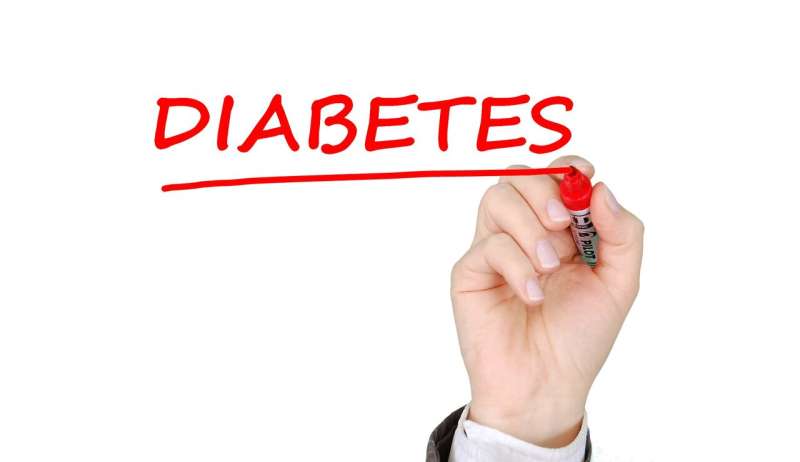US survey highlights considerable gaps in diabetes care during COVID-19 pandemic

The COVID-19 pandemic has resulted in worsening diabetes care and management across the USA in those with and without COVID-19 infections, according to the first-of-its kind survey looking at the impact of the pandemic on socioeconomic, clinical, and lifestyle aspects of diabetes management.
The researchers say the findings, being presented at the Annual Meeting of the European Association for the Study of Diabetes (EASD), held online this year (27 Sept-1 Oct), indicate an urgent need to increase support for people with diabetes, and offer valuable lessons for diabetes management during the current and future public health crises.
"Our findings help us to understand the hidden toll the COVID-19 pandemic has taken on those with chronic diseases like diabetes", says lead author Alexandria Ratzki-Leewing from Western University, London, Canada. "Community containment measures—while designed to keep people safe—severely disrupted routine care and service delivery. Individuals with diabetes experienced difficulties accessing care providers, medications, and testing supplies. The pandemic has also led to psychosocial stress, such as feelings of powerlessness and a lack of social support. All of these disruptions can compromise optimal diabetes management and, consequently, increase the risk of negative short- and long-term outcomes."
Over 34 million Americans—just over 1 in 10—have type 1 (T1D) or type 2 diabetes (T2D), with treatment costing more $US230 billion a year [1]. All people with diabetes need to test their glucose (sugar) levels several times a day and every few months have their haemoglobin A1c (a measure of their sugar levels over the previous three months) tested. Uncontrolled diabetes can cause damage to various organs and lead to disabling and life-threatening conditions, such as heart disease, stroke, blindness, kidney disease and foot problems that can lead to amputations.
COVID-19 has killed more than 670,000 people in the USA, and has had an especially devastating impact on the millions of Americans with diabetes. The US Centers for Disease Control and Prevention (CDC) estimates that at least 40% of those who died with COVID-19 also had diabetes. However, these figures don't reflect the disruption the pandemic has caused to diabetes care and management in the community.
To find out more about how and to what extent the pandemic has impacted diabetes management in Americans, researchers analysed data from the real-world iNPHORM study—a 12-month panel survey of over 1,200 US adults (aged 18 to 90 years old) with T1D or T2D who had taken insulin and/or secretagogues (diabetes medications) within the last year. Participants were recruited from a representative online panel, and were asked to complete monthly surveys about their hypoglycaemia (low blood sugar) and hyperglycemia (high blood sugar) experiences, various aspects of blood sugar management and overall health.
For this descriptive analysis, researchers used survey findings from a sample of 772 participants (average age 52 years; of whom 19% had T1D; and just over half [51%] were female) collected in January 2021, nearly a year after the first US case was detected. Between March 2020 and January 2021, 9% of participants had medically confirmed COVID-19.
The analysis found that 1 in 4 (T1D 25%, T2D 23%) people with diabetes reported that the pandemic had made affording rent or living expenses somewhat or much harder, while around 1 in 5 (T1D 21%, T2D 18%) struggled to make sure they had enough food to avoid hypoglycemia.
Another alarming finding was that around 1 in 6 had difficulty paying for their diabetes medications (T1D 20%, T2D 17%) or test strips/sensors needed to manage daily insulin injections (T1D 17%, T2D 16%), while more than 1 in 5 reported issues picking up their medications (T1D 24%, T2D 22%). More than 10% also said they rationed their diabetes medications to extend supplies (T1D 16%, T2D 11%) or to avoid hypoglycemia (T1D 17%, T2D 9%).
Some respondents also reported finding it difficult to remember to take their diabetes medication(s) as prescribed (T1D 8%, T2D 12%), test their blood glucose (T1D 10%, T2D 13%), or monitor their risk of hypoglycemia (T1D 10%, T2D 13%). Overall, around 1 in 10 felt less in control of their hypoglycemia (T1D 16%, T2D 10%) with 1 in 6 saying that they didn't have enough social support to help them manage a so called 'hypo' incident (T1D 16%, T2D 16%).
The analysis also found that 1 in 4 thought that the pandemic had impeded their ability to consult with diabetes care providers (T1D 26%, T2D 25%). And more than 1 in 3 struggled to stay as physically active as usual (T1D 38%, T2D 37%).
According to Ratzki-Leewing, "COVID-19 has caused devastating ripple effects that extend well-beyond infection alone. Not least are the impacts it has had on Americans with diabetes, of whom many are now struggling to maintain control of their disease. This is the first real-world study to quantify these diverse impacts in a general US population with T1D and T2D, and highlights the pressing care gaps caused by the pandemic. We hope our findings provide a roadmap for necessary remedial action that ensures undisrupted diabetes management moving forward. We mustn't let these patients fall through the cracks."
The authors note several limitations of the study, including that selection and volunteer bias may have influenced study results, and that. self-reported responses could have been subject to social desirability bias and/or recall error.




















